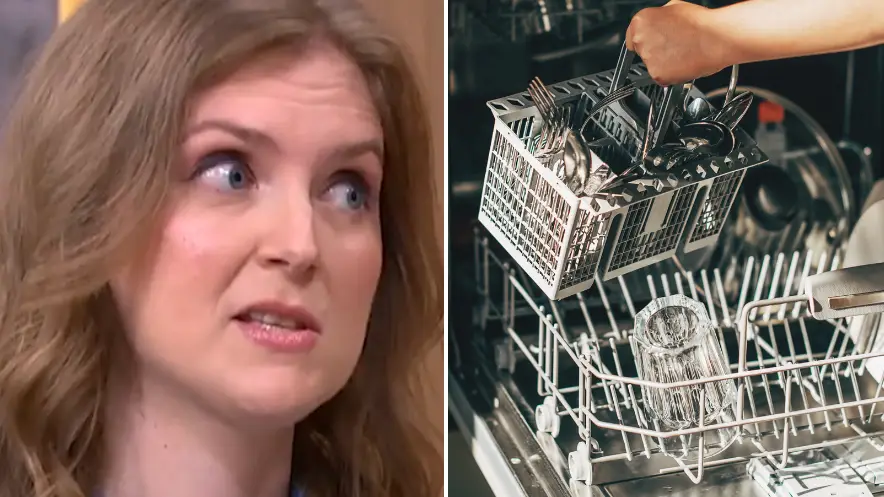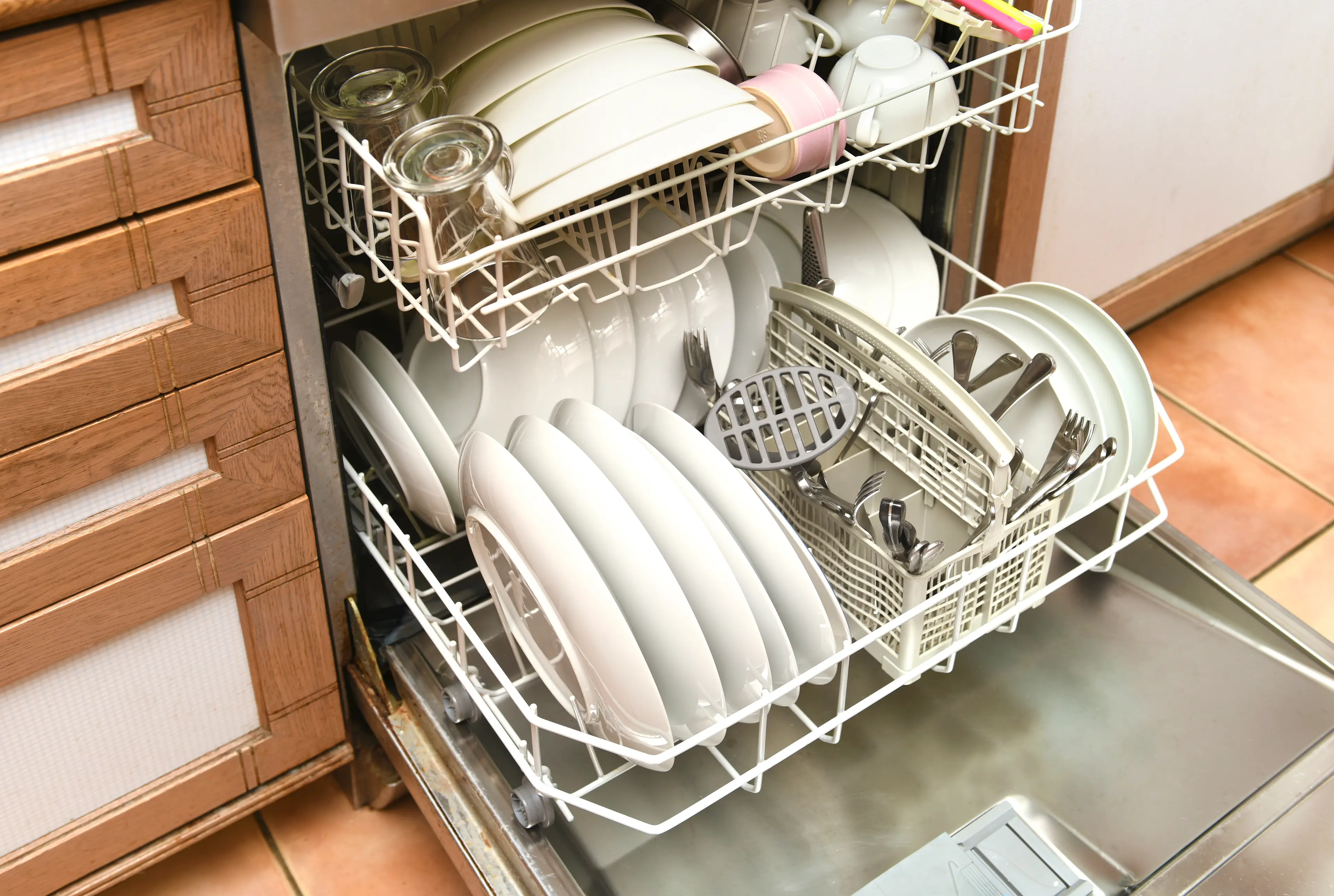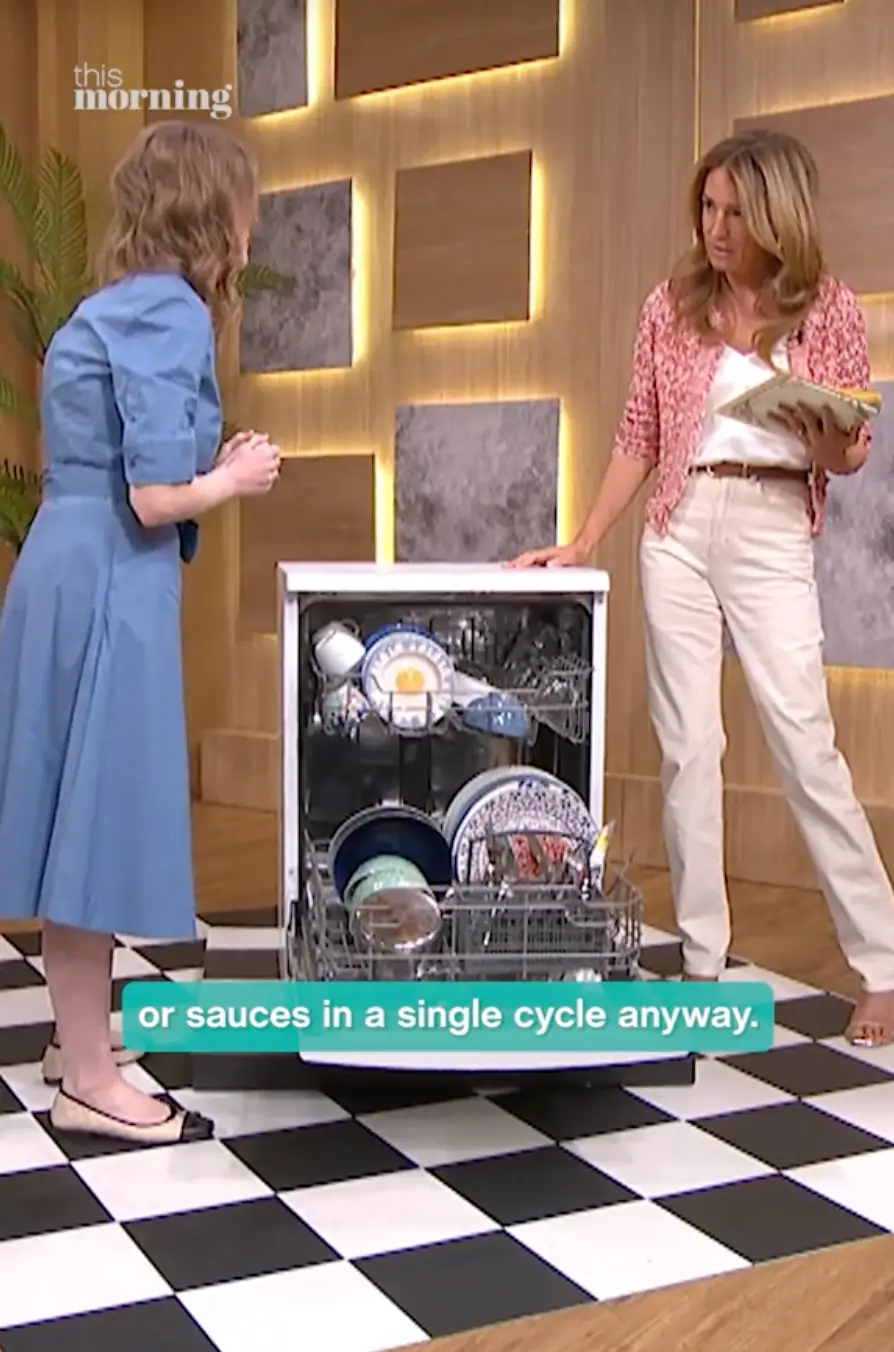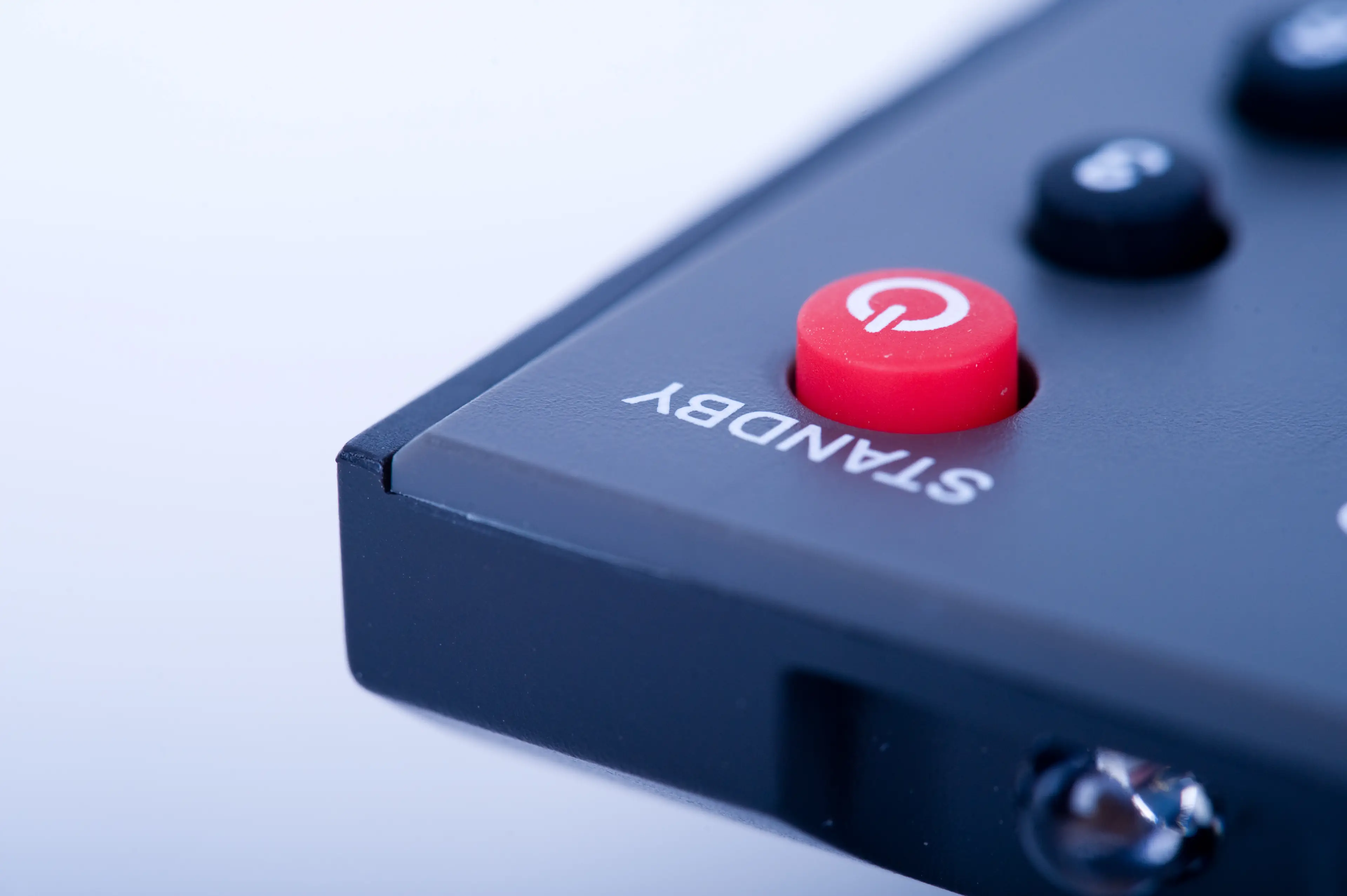
In the midst of the dreaded - and seemingly unceasing - cost of living crisis, it's no surprise that current UK homeowners are looking for any means possible of holding onto their wallets, and one expert has recommend a nifty new dishwasher hack.
Whether that be batch cooking meals, taking note of your home's 'phantom load', or relying on thick-knit blankets instead of switching the heating on, financial experts are constantly suggesting various ways in which Brits can save money.
The issue is, however, that many of these supposedly handy hacks often mean some form of sacrifice is necessary - a nutritious meal, a thorough clothing wash, warmth.
Advert
This week, however, one cleaning expert has lifted the lid on a pretty simple household practice which she says not only saves you money, but it'll be good for the environment AND saves you effort - all without having to sacrifice anything major.
Katie Mottram - Good Housekeeping cleaning professional - appeared on This Morning earlier this week, where she spoke to presenters Ben Shephard and Cat Deeley on the do's and don'ts of dishwashing.
Asked about the long-standing theory that it is absolutely essential to rinse your plates, bowls and pans before sticking them in the machine, Katie finally set the record straight.
"This is an age-long debate," host Cat questions. "Do we rinse the plates off before we put them in the dishwasher, or do we just scrape them off and put them straight in?"

"The latter," Katie confirmed. "You never want to rise. Rinsing is basically a way of water, time and money."
She went on to explain: "Dishwashers are advanced enough now that they'll basically remove all greasy residue or sauces in a single cycle anyway."
So, by sticking the tap on and giving your muckiest items a quick scrub before stacking it carefully inside your household device, you're inadvertently - and apparently, needlessly - contributing to your already increasing water bills.
I mean, think about how many times a week you load the dishwasher, and how many items get placed carefully inside.
If you're washing every single piece of cutlery, you'll definitely be piling on the pounds bill-wise.
By the sounds of things, however, viewers weren't thrilled by the news, with many claiming it feels wrong not to rinse their dishes beforehand.

"I def ain’t putting meat pieces and egg in my dishwasher," one insisted on social media.
Another went on: "Noooo.... definitely rinse. Effort prevents cleaning the dishwasher to clean pipes etc."
"Yeah but then you need to clean your dishwasher more because it's full of food. It doesn't just disappear!!" a third hit out.
The handy hack comes just days after one finance expert warned Tyla about the risk of the 'phantom load', and how you can avoid paying more for running your household appliances.
For those unfamiliar with this rather unheard-of concept, if you're guilty of your telly on standby mode when you go to bed, as opposed to switching it off at the wall, sadly, you're inadvertently a victim of the phantom load.
Rachel Kerrone - a Personal Finance Expert at Starling Bank - told us everything we need to know about the secret cost.

"Essentially, this is leaving your appliances and devices turned on and in standby mode and plugged in and on at the wall.
"For example, just because you’re not boiling your kettle all the time doesn't mean that leaving your kettle switched on at the wall isn’t costing you anything.
"This applies to a range of regular household appliances and devices - from your kettle, microwave and air fryer, to your TV, Sky Box and Xbox."
Naturally, there are some unavoidable ways we fall for the phantom load bill.
"While there are the obvious things that need to be left on all the time - like your fridge and freezer, as well as your broadband router," Rachel said. "You shouldn’t ignore that flashing microwave clock or standby light from the TV."
Topics: Hacks, Cleaning, Money, Cost of Living, Life Hacks